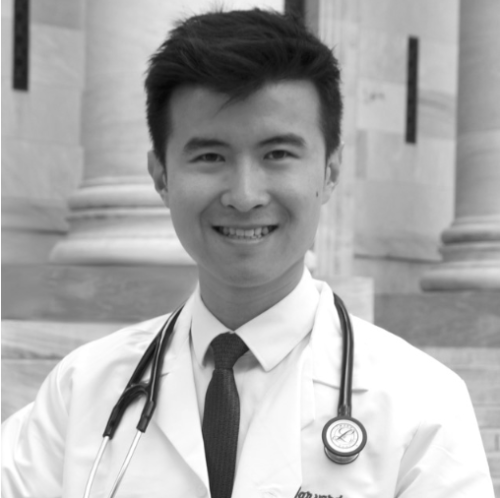“You are more than your resume.”
This catchy slogan promotes a dynamic survey aimed to connect many disillusioned Harvard students to environments where they can do work that matches morals rather than a brand name. Kushan Weerakoon ’05, co-founder of the startup-in-progress, described his intentions behind the idea: not to become rich and successful, but to reconnect spiraling Harvard students with their values.
Three interviews with three unique startup founders in the fields of career development, personalized assistance, and healthcare technology all echoed the same mission statement: perhaps the use of AI startups and large language models (at least, those created in part from the Harvard sphere) exist to maintain and uplift humanity’s morality, not contribute to its creative demise.
“[People] end up funneling to jobs based on brand names or other things instead of culture or mission,” began Weerakoon, who referenced a similar occurrence in his own college experience. Vocate—a temporary name for his startup—attempts to curb this by simulating a coffee chat through a series of short questions and feeding it into a large database that has available job opportunities labeled by their values.
The end result is a perfect match: students find job opportunities posted by companies with shared values and cultures. Weerakoon and his team aspire for their startup to rekindle the moral fuel that many Harvard first-years arrive with but quickly lose when being pulled into other heavily populated spaces. “I feel like I’m excited about my [summer] job now because of the culture…And everyone here doesn’t have a deliberate way of doing that.”
This approach of improving personal well-being and quality of life was enthusiastically similar to Avi Schiffmann, founder of Tab, a wearable AI necklace that functions as a personal assistant with a unique twist. The story behind his product ideation began while he was a student at Harvard. Schiffmann embarked on his educational journey with a feeling that all students face: overwhelmed. “I was terrible at taking notes [and] keeping track of things,” said Schiffmann. “[I] tried using second brain tools like Notion, but they were such a pain to maintain.” Schiffmann eventually paused his academic trajectory to pursue his startup with full energy and focus, and to remedy these problems.
Tab differs from any other transcription device through a seemingly simple yet brilliant ideology: two-way conversations with all-encompassing accuracy. Our current, most common forms of AI such as ChatGPT require exhaustive amounts of human-inputted data and information to generate answers, a process known as prompt engineering. Once you provide this AI with context, it gives you a quick answer. Such responses are often incorrect or not perfectly attuned to the user’s question. Tab, however, uses a microphone to understand the idea of your conversations, not just a rote summary.
“It’s not just what you say; there’s a lot of emotional nuance in how you say things,” said Schiffmann, hinting at a great human quality that AI currently lacks. Expression, modulation in tone, and pauses all contribute to the true meaning of a sentence, and Tab captures just that. According to Schiffmann, this is the essence of Tab; it’s as simple as, “just an AI to talk to that has a context of your life.”
In this simplicity lies a great opportunity for broadening the scope of the product and perhaps even the future of AI innovation. “We have primitive brains, but alien ideas all around us,” said Schiffmann, as we are engulfed in our thoughts and need a tool for “offloading [our] memory management.”
Schiffmann discussed the variety of customers who purchased from his successfully sold-out pre order, all of whom found early interest in the product. “[It included] everyone from people with severe ADHD, to government officials with tons of meetings, to gamers who need a ‘Player 2’ to help them think about their ideas.” Tab holds considerable promise in revolutionizing several other fields; from customizing news feeds tailored to a user’s conversations, to creating ever-present AI therapists with immediate access to clients. The possibilities seem endless.
Schiffmann’s initial annoyance of notetaking was shared by a third innovator. William Shen ’22, cofounder of AuxHealth, sought innovation in medicine. As a second-year student at Harvard Medical School and graduate of Harvard College, Shen aims to solve the constraints of time restrictions between a physician and patient, which currently contribute to an impersonal and rushed experience for the patient.
Shen recognized early on that most people used ChatGPT to answer their questions, but when talking with patients, a chatbot needs the capability to ask the questions. This technology “combines large language models with medical ontologies,” in order to conduct a preliminary medical interview. Shen aspires for this USMLE-certified neural network to maintain the spirit of in-depth human connection: both by making doctor’s lives easier and allowing patients to feel fully heard.
With new technologies comes the fear of the unknown. Weerakoon describes AI as “asymptotically reaching human intelligence,” a sentiment exemplified through prevalent public concerns of job security and machines taking over the planet.
From making doctor’s appointments more meaningful to prioritizing ease and creativity with a tailored personal assistant, the promise of human-centric, value-focused AI innovation doesn’t let us forget our humanity in the process of crossing new technological boundaries. These startups are key examples of ways we can use innovation to improve human fallacies instead of replacing it in totality. This combats common AI fears, and instead contributes to the possibility of a constructive and inspired future.
“Intelligence is the new transistor,” concluded Schiffmann. “It’s a fundamental primitive that you’ll build things on, [and it] will enable all kinds of good things and all kinds of bad things… The goal is just to enable the good over the bad.”
Gauri Sood ’26 (gaurisood@college.harvard.edu) has the sudden urge to do a Computer Science Secondary.

